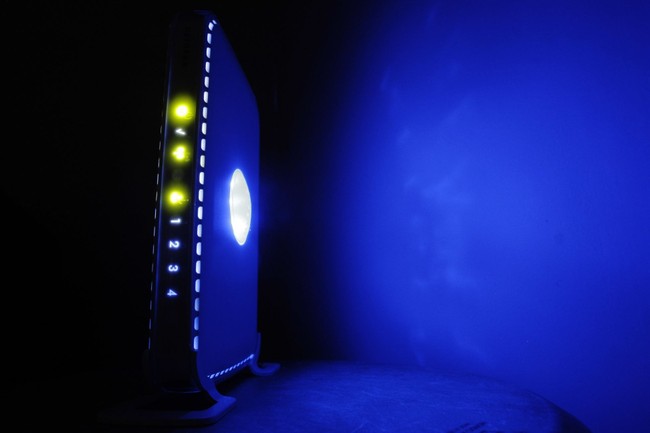We Have a Chinese Spying Problem
This post was originally published on this site

Yesterday, Chen Jinping admitted in federal court that he ran a secret Chinese police station in New York City on behalf of the People’s Republic of China.
“I knowingly agreed to act as a foreign agent, for a foreign government,” he told Judge Nina Morrison, speaking through an interpreter.
But he acted cagey when the judge asked him which government he was working for.
Chen briefly tried in vain to sidestep the question by repeating “the government” — and only admitted that he’d been representing China after he was pressed again by the judge.
Advertisement
Chen will be sentenced next May and is facing up to five years in prison. His partner in crime “Harry” Lu Jianwang has his own trial coming up soon.
Today we’re learning about another Chinese spy, this one was operating in Southern California.
Yaoning “Mike” Sun, 64, was charged with acting as an illegal agent of a foreign power and conspiring with another man — John Chen — who had been plotting to target U.S.-based practitioners of Falun Gong, a spiritual practice banned in China. Chen was sentenced last month to 20 months in prison for acting as an unregistered agent of the People’s Republic of China and bribing an Internal Revenue Service agent.
Sun, a Chinese national, served as the campaign manager and business partner for a Southern California politician, described in court records only as Individual 1. The politician was running for local elected office in 2022…
While he was in custody, prosecutors allege Chen told his cellmate that he was a Chinese spy working for an agency that’s “100 times better than the FBI,” according to the complaint.
Chinese spies certainly are arrogant. Maybe because they seem to get away with so much. Also this week we’re learning about another potential threat involving Chinese internet routers.
US officials are concerned that cheap and ubiquitous routers made by TP-Link could offer a foothold for China-backed hackers into US infrastructure, the sources said.
The Commerce Department has opened a probe into the company that is in its nascent stages. One possible outcome of the probe is a ban on the sale of TP-Link routers in the US, two of the sources, said…
Founded in China in 1996, TP-Link has grown into a dominant player in the global market for wireless internet routers. Its exact market share in the US is unclear (a TP-Link spokesperson did not respond to a question on market share), but the gear’s wide use in the US is one reason for the investigation.
TP-Link this year announced a corporate restructuring, establishing a headquarters in California, TP-Link Systems, that it says is separate from its China operations.
Advertisement
This is exactly what TikTok tried to do. It also established a US subsidiary and then claimed all US data would be maintained on servers inside the US. But that didn’t prove that the Chinese company in charge, ByteDance, couldn’t look into this data at any time or wouldn’t be required to do so by the Chinese government. TP-Link is apparently a top brand in the US.
The Justice, Defense and Commerce Departments have all been scrutinizing TP-Link, the most widely used home router in the United States, with Commerce considering a potential ban of the devices, two people familiar with the matter said Wednesday, speaking on the condition of anonymity because of the matter’s sensitivity, and confirming an earlier report by the Wall Street Journal.
Congress is also trying to fund an effort to replace Chinese telecommunications equipment.
As part of the annual defense budget green-lit on Wednesday, Congress approved $3 billion to complete the “Rip and Replace” program to remove equipment made by the Chinese telecommunications manufacturing giants Huawei Technologies and ZTE from rural U.S. phone networks. The initiative was begun in 2020 by the Trump administration, but FCC officials soon realized they needed more than double the original funding to finish the job, largely stalling the program.
Advertisement
All of this follows the hacking which I wrote about here and here which may have allowed the Chinese government to listen in on Donald Trump’s calls (and JD Vance’s) during the campaign. The government run Chinese hackers behind that effort still haven’t been pushed out of US telecom networks.
Officials have said they do not believe that the Chinese hackers have been ousted from the networks of at least eight telecommunications firms, including the nation’s two largest, Verizon and AT&T. That suggests that China’s hackers retain the capability to escalate.
Since Microsoft first alerted the telecommunications firms over the summer that they had found evidence of hackers deep in their systems, the Biden administration has struggled to come up with a response. It created a task force inside the White House, and the issue is considered so serious that the group meets almost daily. Chief executives of the affected firms have been summoned to the Situation Room to come up with a joint plan of action.
In short, the Chinese have been acting with impunity on US soil and in US networks. At some point we may need to make it clear to them we don’t like the intrusions.
